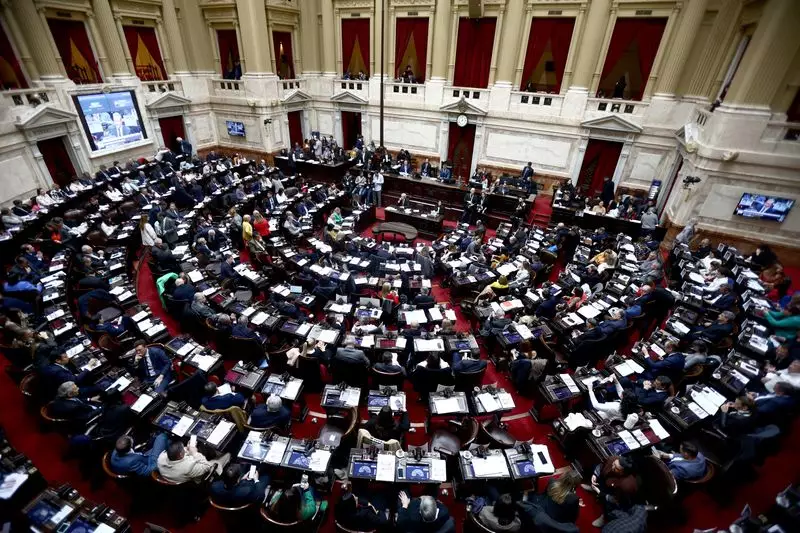Argentina’s President Javier Milei recently achieved a big legislative win with the approval of economic reform measures proposed by him in Congress. This comes just over six months after he took office, indicating early success in his presidency. The measures, which include investment incentives, privatization of state-owned entities, and tax reforms, are aimed at shaking up the country’s troubled economy.
The final discussions regarding Milei’s reform bill took place in the lower Chamber of Deputies after initial approval was secured. The focus of the debate was on finalizing the details before the measures become law. The government had to negotiate with allies in Congress, where it only holds a small minority of seats, leading to significant changes in the original drafts of the bills. Despite facing opposition and delays, the ruling party was able to push through a framework to implement necessary economic measures.
President Milei inherited an economic mess upon taking office, with triple digit inflation, negative foreign currency reserves, and a sliding economy. He has focused on implementing tough austerity measures to bring the state’s finances in order. While he has seen some success in controlling inflation, rebuilding reserves, and achieving a fiscal surplus, the economy has still been impacted significantly.
After approvals in both the Chamber of Deputies and the Senate, the lower chamber will now vote on the changes made in the Senate. The government hopes to reinstate certain articles on taxation and personal assets that were removed during the Senate debates. There is a possibility of opposition legislators turning to the courts to challenge the constitutionality of certain laws, indicating potential future legal battles.
Opinions among the Argentine public are divided regarding the economic reforms. Some express concerns about tax changes and investment plans, fearing that foreign firms may exploit the system. However, others recognize the need for reforms after years of economic crisis and rising inflation. While not everyone agrees with all aspects of the bills, there is a sense of urgency to address the economic challenges faced by the country.
Argentina’s economic reform measures have sparked debates and discussions both in Congress and among the public. President Milei’s administration has faced hurdles and opposition, but has managed to push through key economic reforms. The coming months will be crucial in determining the success and impact of these measures on the country’s economy.

